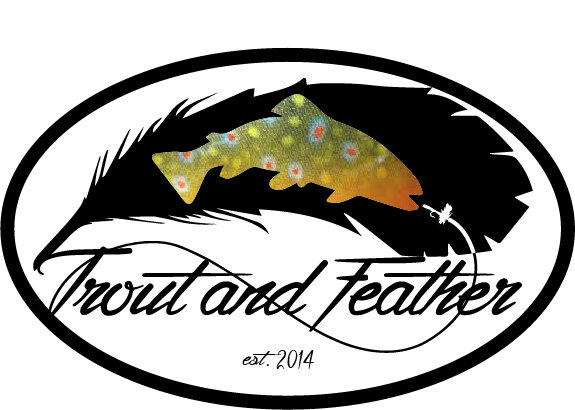I had read about this particular creek dozens of times before I had ever fished it. Walking the banks the first time meant adjusting my expectations alongside reading the water. There wasn’t a trophy trout in every pool as I had anticipated. The mental picture of the famous pools was different than reality. And one stretch that I had read about was conspicuously absent from the fly shop-provided map I was following.
Many of the resources I had been using were from the ’60s and ’70s. Change, even in major river features, is inevitable. But an entire tributary hadn’t made the contemporary map.
Cross-referencing what I had read with what I was seeing, I came to where the little flow should enter the stream. From a distance I didn’t see anything. When I got on top of it, I realized that there was indeed water entering the creek at a perpendicular angle. It was shallow, weedy, and covered in brush. Only about ten feet in and it opened up. Soon enough I was into fish. Really good fish.
Reading historical accounts of fly fishing might pay off in really good fishing. More often than not, the reward is going to be in what you learn and how that impacts your time on the water… regardless of if you’re catching fish or not.
Here are three reasons why digging into the history of fly fishing will be beneficial, and three great ways to get started:
Education
It is always valuable to know the who, what, when, where, and why of a subject you’re invested in. Who were the pivotal fly fishing figures in early conservation? What lead to the industry shift from glass to graphite (and back again)? When and where did stocking become standard practice on your local waters? Why does fly fishing writing tend to lend itself to poetic flourish? You can answer all those questions, and learn practical things like fly tying and presentation tactics, from history.
Conservation
Especially in the past half-century, the mistakes and victories of environmental protection are on display for all to see. As you’re involved in conservation or simply voting on issues, understanding what has transpired up until this point matters. If you want to make a difference or make yourself heard, you ought to be well informed. You also don’t want to make the same mistake twice – especially if a river and millions of dollars are at stake.
Entertainment
Learning about the men and women who came before you - the gear that they used, their priorities in fishing, and their stories – is fun. It is rewarding when you can take pieces of their experiences on the water with you. Perhaps it is a way to stay connected vicariously when you’re not on the water. Maybe it is a pathway to form a more intimate connection to your favorite river. Whatever the reason taking in the history of fly fishing makes you happy; go for it.
***
So where should you go to start discovering the history of fly fishing? You’ve got options:
Books
It is as simple as picking up a 50 year-old classic of angling literature. You can read Izaak Walton and Dame Juliana, but it doesn’t have to be that challenging. Even books that aren’t explicitly written as chronicles of the past will have narrative or circumstantial details that illuminate what and how things used to be done.
Here is a link to dozens of concise book reviews, a good number of them focusing on the topic at hand.
Museums
Did you know that there are fly fishing museums in Manchester, Vermont; Carlisle, Pennsylvania; Livingston, Montana and a number of other locales around the country? Most are situated right on the banks of famous trout streams. If you can tear yourself away from the water for a few hours you’ll certainly appreciate the experience.
People
Before books, there were conversations. Talk to the guy who runs the fly shop. Speak to the matriarch of the TU chapter banquet. Make a point to hang out and ask the old-timers in the parking lot picnic table some questions. As great as books and museums are, the truth is that many of the authors and exhibits are still fishing your rivers today.
Written by: Matthew Lourdeau of “Casting Across”

